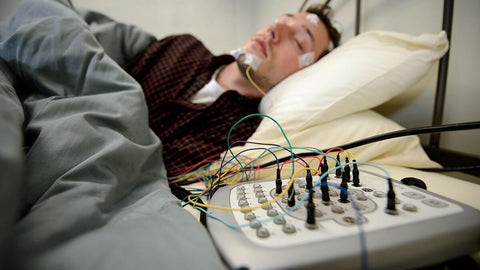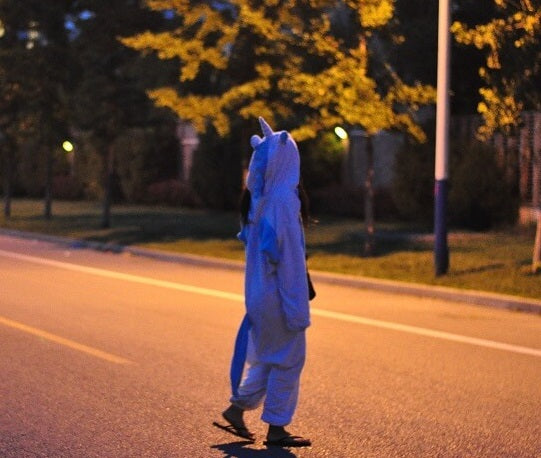1) Sleep deprivation does NOT lead to ADHD

One common myth about sleep deprivation is that it can lead to Attention Deficit Hyperactivity Disorder (ADHD). However, there is no scientific evidence to support this claim. ADHD is a neurological disorder with a genetic component, and while lack of sleep can certainly exacerbate symptoms, it does not cause the disorder.
It's important to note that lack of sleep can have other negative impacts on mental health, including mood changes, irritability, and difficulty concentrating. However, these symptoms are not the same as ADHD and should not be conflated.
So if you're experiencing sleep deprivation and concerned about your mental health, it's important to speak with a medical professional to determine the root cause of your symptoms. And while lack of sleep may not cause ADHD, it's still important to prioritize getting enough rest for overall health and well-being.
2) Depression-like symptoms are NOT caused by sleep deprivation

It's a common misconception that sleep deprivation can lead to depression-like symptoms. However, studies have shown that while lack of sleep can exacerbate symptoms in individuals who are already clinically depressed, it doesn't cause depression on its own.
The relationship between sleep and mood is a complex one. Sleep problems can be both a cause and a symptom of depression, as the two are closely linked. Additionally, depression itself can often disrupt normal sleep patterns, leading to a vicious cycle where lack of sleep worsens depression, which in turn leads to even more sleep problems.
While sleep deprivation doesn't cause depression, it is important to recognize the impact that sleep can have on mental health. Good sleep habits, including getting enough restful sleep each night, can be an important part of managing symptoms of depression and other mental health conditions.
Furthermore, while sleep deprivation doesn't directly cause obesity, it can be a contributing factor. Sleep deprivation has been linked to an increased risk of weight gain and obesity, as it can affect hormones that regulate appetite and metabolism. So, while it's important not to believe the myth that sleep deprivation causes depression-like symptoms, it's still crucial to prioritize getting enough sleep each night for overall health and well-being.
3) Sleep deprivation does NOT decrease mental alertness or cognitive function

One of the most common misconceptions about sleep deprivation is that it leads to decreased mental alertness and cognitive function. While it is true that lack of sleep can make you feel foggy and less focused, studies have shown that this does not necessarily mean your cognitive abilities are diminished.
Research has found that some individuals may experience a boost in cognitive performance after sleep deprivation, at least in certain areas. One study published in the Journal of Sleep Research found that sleep-deprived individuals performed better on tasks requiring sustained attention and cognitive flexibility, while another study in the journal SLEEP found that participants who were awake for 36 hours performed better on a visual search task than those who had slept normally.
Of course, it's important to note that these findings are not universally true for all individuals, and they do not suggest that sleep deprivation is a healthy or sustainable way to boost cognitive performance. Rather, they highlight the complex and individualized nature of sleep and cognition, and the need for further research in this area.
So, while it is certainly true that getting enough sleep is crucial for maintaining optimal cognitive function, it is also important to recognize that the relationship between sleep and cognitive performance is not as simple as many of us have been led to believe.
4) Obesity is NOT caused by sleep deprivation

One of the most common misconceptions about sleep deprivation is that it causes obesity. While lack of sleep can affect hormone levels that regulate appetite, leading to increased hunger and potential weight gain, it is not a direct cause of obesity. Obesity is a complex condition that can be influenced by a variety of factors, including genetics, lifestyle choices, and medical conditions. However, it is important to note that chronic sleep deprivation can contribute to a range of health issues that may indirectly contribute to weight gain and other health concerns. So while sleep deprivation may not be the sole cause of obesity, it is still crucial to prioritize getting enough quality sleep as part of a healthy lifestyle.
5) There are many other myths about sleep deprivation that are not true!

While we have addressed some of the most common myths about sleep deprivation, it is important to note that there are many others out there that are not true. For example, some people believe that sleeping in on the weekends can make up for lost sleep during the week. While this may make you feel more rested in the short term, it is not a long-term solution and can disrupt your sleep patterns further.
Another common myth is that people can get by with less than the recommended 7-8 hours of sleep per night. While some individuals may function well with less sleep, it is not sustainable or healthy for most people. Chronic sleep deprivation can lead to a host of physical and mental health problems, including a weakened immune system and an increased risk of depression and anxiety.
Lastly, some people believe that drinking alcohol before bed can help them sleep better. While alcohol may initially make you feel drowsy, it disrupts your sleep later in the night and can lead to poor-quality sleep and even insomnia.
It is important to debunk these myths about sleep deprivation to promote healthy sleep habits and overall wellness. Getting enough sleep is crucial for our physical, mental, and emotional well-being, and it is up to each of us to prioritize and value our sleep.






